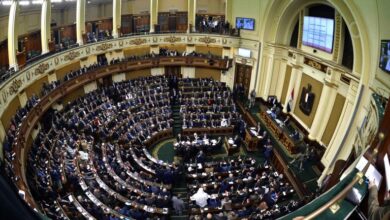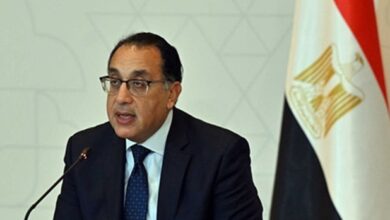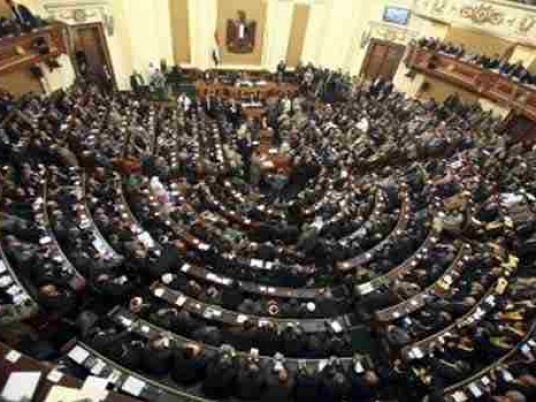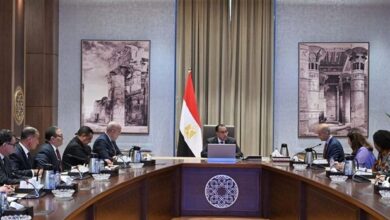The National Dialogue Conference, which yesterday ended in chaos due to the participation of former ruling National Democratic Party (NDP) members, made headlines in today’s papers.
The meeting is meant to be a forum for politicians and activists to discuss the country’s political future. However, as Al-Shorouk’s front page headline says, “the toppled ruling party disrupts the National Dialogue.” The state-run Al-Akhbar runs the headline, “Chaos at the National Dialogue.”
But more fundamentally, Al-Shorouk’s Wael Qandil uses his column to question the function of such meetings. The National Dialogue’s session comes only one day after the National Accord Conference, which shares similar aims and somewhat similar participants, albeit with the absence of the Muslim Brotherhood, one of the country’s main political groups. Qandil’s main criticism is that the Supreme Council of the Armed Forces issues landmark legislations, such as the law on exercising political rights, without any prior consultations, and these meetings have convened afterwards in what seems to be a useless setting. Qandil also criticizes the “random” approach to inviting people, best exemplified in the inclusion of NDP figures on Sunday’s National Dialogue session.
Al-Shorouk also published a response it received from presidential candidate Mohamed ElBaradei, who declined invitations to attend both meetings.
“We can’t lose more time in cosmetic meetings, but need to work on a serious national dialogue that reaches a settlement on how the transitional period will be managed… Any real national dialogue has to be preceded by consultations among key political players and good preparation for discussion of different pressing issues so they don’t turn into talking sessions,” ElBaradei said. Like Qandil, ElBaradei criticized the unilateral way of putting forward seminal legislations without consulting other political forces.
In a column in Al-Akhbar, Mohamed Barakat writes about Saturday’s National Accord conference, which saw less chaos than the National Dialogue the next day, but was not attended representatives of the Muslim Brotherhood. Barakat comments that the Brotherhood’s refusal to attend the National Accord is disturbing. The Brotherhood reportedly informed the conference’s head, Yehia al-Gamal, who’s Egypt's deputy prime minister, that they don’t see a need to attend the conference as they will be present in the committee that drafts the constitution after the parliamentary elections. Barakat indicates how disconcerting it is for him and the rest of the conference attendees that the Brotherhood is confident of its control over parliament and thus the writing of the new constitution, and hence doesn’t need to be part of national accord or dialogue meetings.
The Brotherhood’s inauguration of a central headquarters in the Moqattam neighborhood on Saturday was described as “legendary” by the privately-owned Al-Dostour, which dedicates a whole page to cover the day. Pictures of the new headquarters of the country’s key political player show a large multi-story building with the name of the Muslim Brotherhood inscribed in big letters on its façade in English and Arabic.
Al-Dostour indicates that two presidential hopefuls, namely Amr Moussa and Hamdeen Sabbahy, attended the inauguration, while other prominent candidates, such as Mohamed ElBaradei and Hesham el-Bastawisi, were not there. Al-Dostour also says guests from outside Egypt, including representatives of the Palestinian Hamas movement, participated. The Brotherhood's Supreme Guide, Mohamed Badie, assured in his opening words that the movement eyes a civil state with an Islam as a reference.
Beside the contestations in the political arena, the lack of security on a street level was the subject of a lot of media coverage in today’s papers. In an interview in Al-Wafd daily, Mohamed Fayeq, vice president of the National Council for Human Rights and former minister of information, said that a semi-organized militia that was involved in employing thugs against pro-democracy protesters and is related to the NDP is still operating. This militia is said to have had a hand in various incidents, such as fueling the clashes around the Imbaba church incident of 7 May.
Al-Dostour runs a story questioning whether Minister of Interior Mansour al-Essawy should keep his position.
“It's 77 days since Essawy took office and the security void persists. Can his patriotism and worry about Egypt push him to resign or would he wait for a decision from the military council? The minister’s popularity in the streets is waning now that crime, thuggery and chaos have increased,” the paper writes.
The state-run Al-Ahram runs a piece on how it is difficult to pursue justice when there is a security void – an issue that judges have complained about, with some mentioning that they won’t do their jobs unless they are properly protected.
“Thugs are storming court rooms with weapons and are warning judges not to issue guilty verdicts," says Al-Ahram.
Egypt's papers:
Al-Ahram: Daily, state-run, largest distribution in Egypt
Al-Akhbar: Daily, state-run, second to Al-Ahram in institutional size
Al-Gomhurriya: Daily, state-run
Rose al-Youssef: Daily, state-run
Al-Dostour: Daily, privately owned
Al-Shorouk: Daily, privately owned
Al-Wafd: Daily, published by the liberal Wafd Party
Al-Arabi: Weekly, published by the Arab Nasserist party
Youm7: Weekly, privately owned
Sawt al-Umma: Weekly, privately owned




